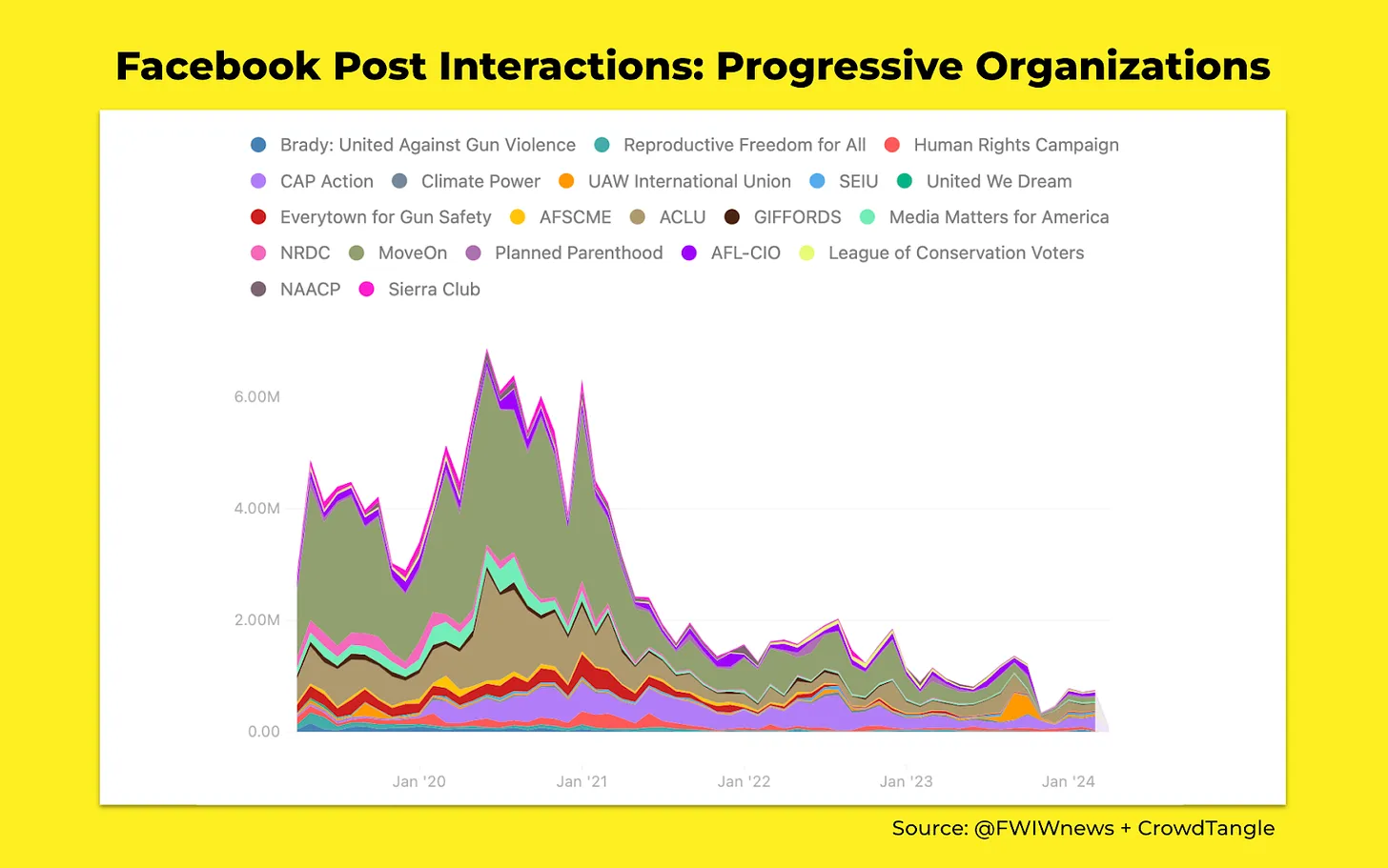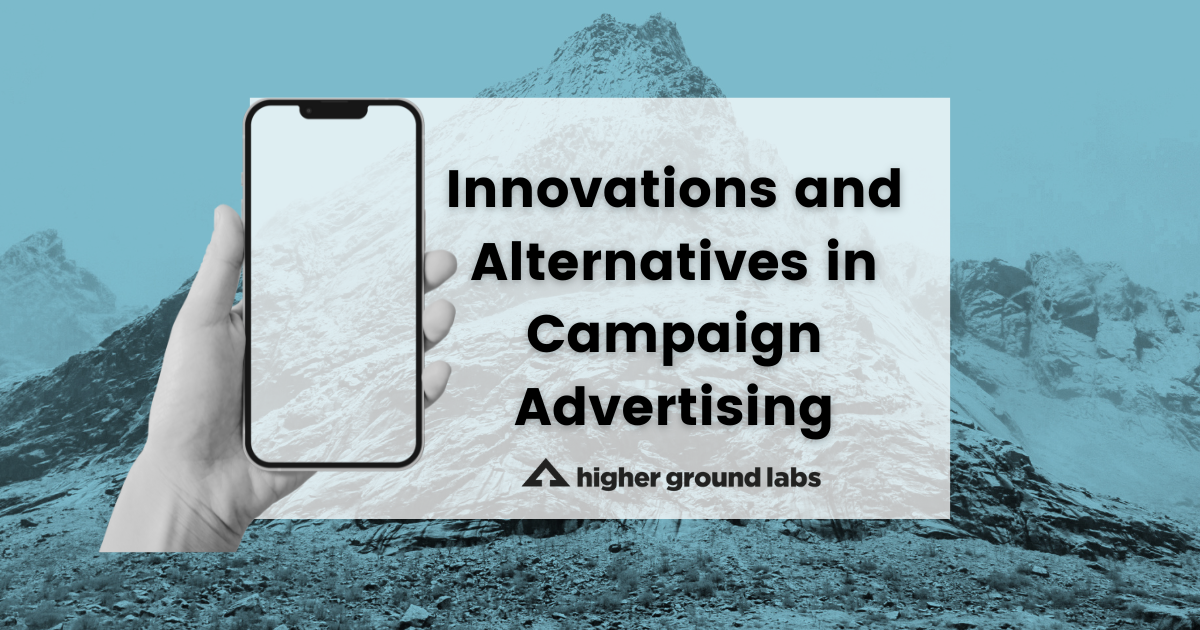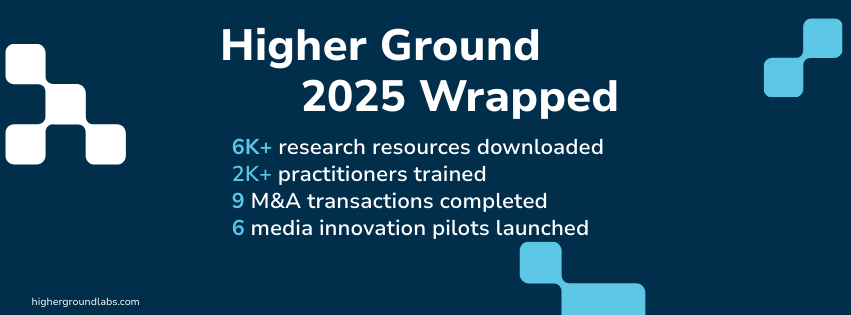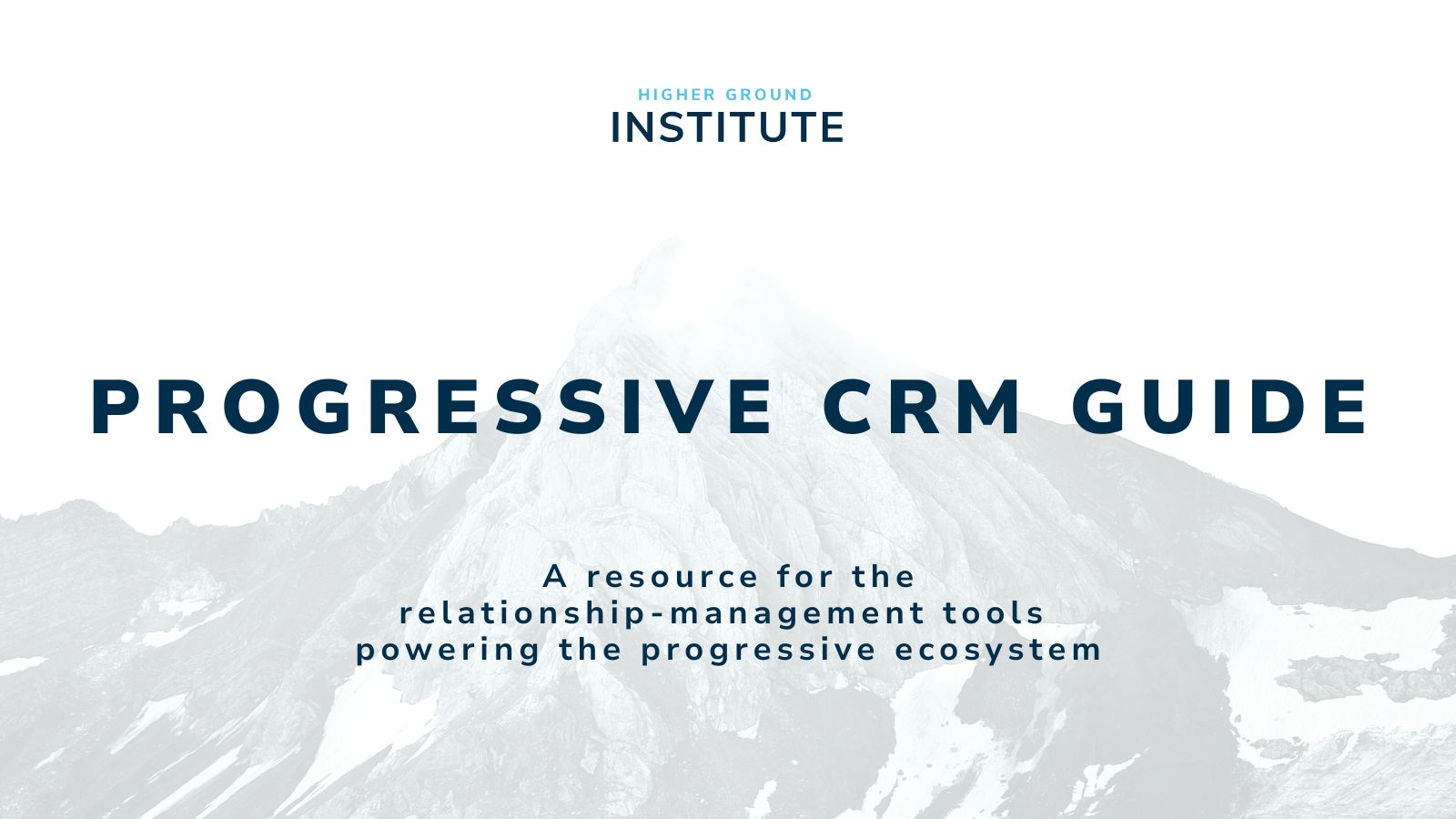Innovations and Alternatives in Campaign Advertising
As we approach the 2024 election cycle, political campaigns and progressive organizations are embracing more innovative voter contact methods. This transition is being accelerated by companies backed by Higher Ground Labs, the leading accelerator and venture fund for Democratic political technology.
With political ad spending projected to exceed $10 billion in 2024, a 13% increase from 2020, campaigns are adopting more personalized ways to connect with voters. This shift is driven by a stark reality: what worked in 2020 will not necessarily work in 2024.
A study conducted by FWIW illustrates this trend, showing how engagement via traditional social media channels – i.e., an organization posting on their own social media accounts – has tumbled for many of the most impactful progressive organizations. This decline in effectiveness of conventional methods has spurred the adoption of two innovative approaches: organic social sharing, where supporters spread campaign messages within their own networks, and influencer marketing, which leverages social media personalities to discuss specific policies or candidates.
These strategies are driven by the power of community-based communication and the need for cost-effective outreach. By tapping into existing social networks and trusted voices, campaigns can maximize impact while optimizing budgets, reaching voters more efficiently and authentically.
 Credit: FWIW newsletter from April 4, 2024
Credit: FWIW newsletter from April 4, 2024
Research consistently shows that people are more likely to trust and act on information shared by peers or respected figures within their communities. According to a study conducted by Nielsen, approximately 9 in 10 consumers trust recommendations from people they know above any other media or marketing channel. Innovative voter contact methods tap into these existing networks of trust, creating more meaningful and impactful connections.
SoSha, an HGL-backed company specializing in organic social sharing, exemplifies this approach. In a recent internal study with 12 advocacy organizations, including trade unions, political parties, and non-profits, SoSha’s data showed impressive results: when community members share petition actions with their networks, they see around 32 new signatures for every 100 shares. Importantly, 58-75% of these signatures come from people not already on the organization’s email list.
Social Currant, another HGL-backed company, is pioneering a novel approach to influencer marketing in politics. They’re partnering with progressive organizations to tap into apolitical content creators and promote policy-related content. This strategy involves collaborating with “microinfluencers” on platforms like TikTok, who may not be household names but have significant followings in their niches.
Social Currant worked with creators like Ryze Hendricks, a rapper with 5.7 million TikTok followers, to promote the Child Tax Credit. Ryze recorded clips rapping about “supportin’ that Child Tax Credit,” garnering over 800,000 views. This creative approach enables campaigns to reach voters through trusted voices in their own communities, fostering authentic connections and driving engagement across diverse demographics.
People First, another HGL portfolio company in the influencer marketing space, conducted studies showing that a single creator post can boost Democratic ad recall among the creator’s followers by 40%. They highlight how influencer content can be seamlessly integrated into various campaign materials, amplifying messages through multiple channels and reinforcing this authentic, community-driven approach.
 Credit: Internal People First study
Credit: Internal People First study
These new approaches allow for more nuanced, targeted messaging that resonates with specific communities and demographics. Instead of broad, one-size-fits-all advertising, campaigns can now tailor their outreach to address the unique concerns and interests of diverse voter groups, leading to more effective and efficient communication.
The effectiveness of these methods is striking. SoSha reports a 51% conversion rate for petition signatures from organic social sharing, far surpassing the 3.5% average conversion rate for sponsored visits on other petition platforms. Social Currant’s influencer campaigns have shown engagement rates up to 60 times higher than traditional digital ads, while People First’s studies demonstrate significant improvements in message recall and persuasion.
As we move closer to November, it’s clear that campaigns and organizations are adapting their strategies to leverage the power of organic social sharing and influencer marketing. HGL-backed companies are helping reach voters more effectively and authentically, potentially reshaping the landscape of political advertising. These newer approaches are not just about reaching voters; they’re about building trust and fostering genuine engagement in an increasingly fragmented media landscape.
To learn more about these innovative approaches to voter engagement, visit the websites of Social Currant, People First, and SoSha or reach out to olivia@highergroundlabs.com
Since 2017, HGL has invested in over 70 political technology startups and deployed over $53 million across four funds, supporting companies at the forefront of campaign innovation.



